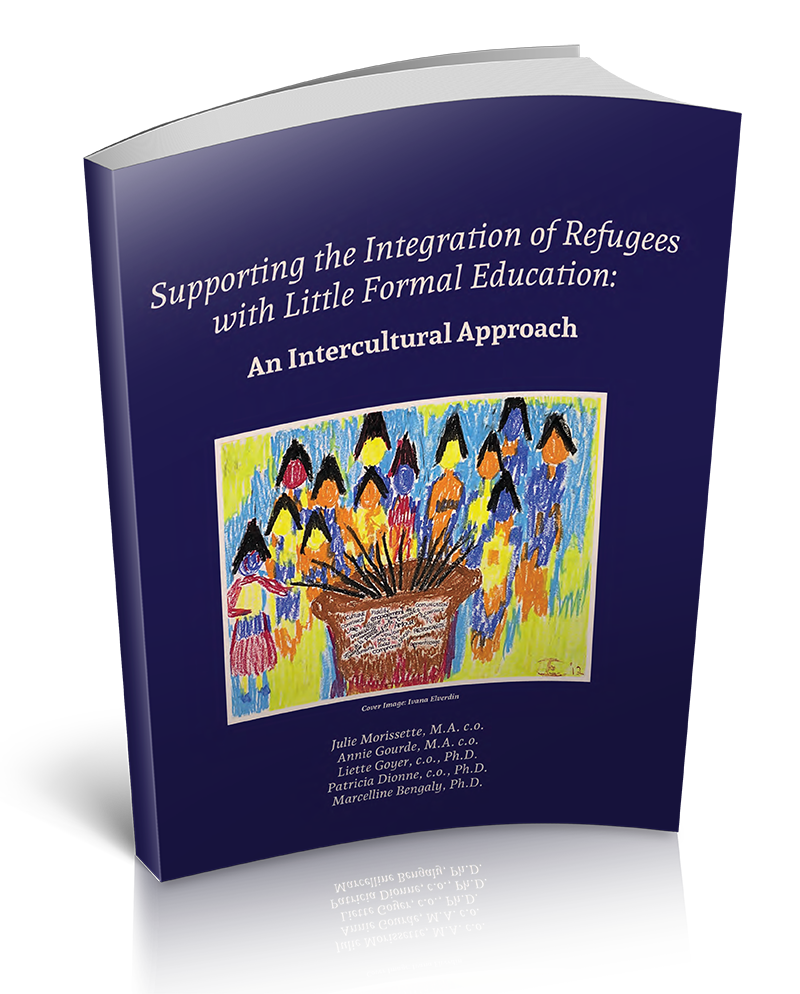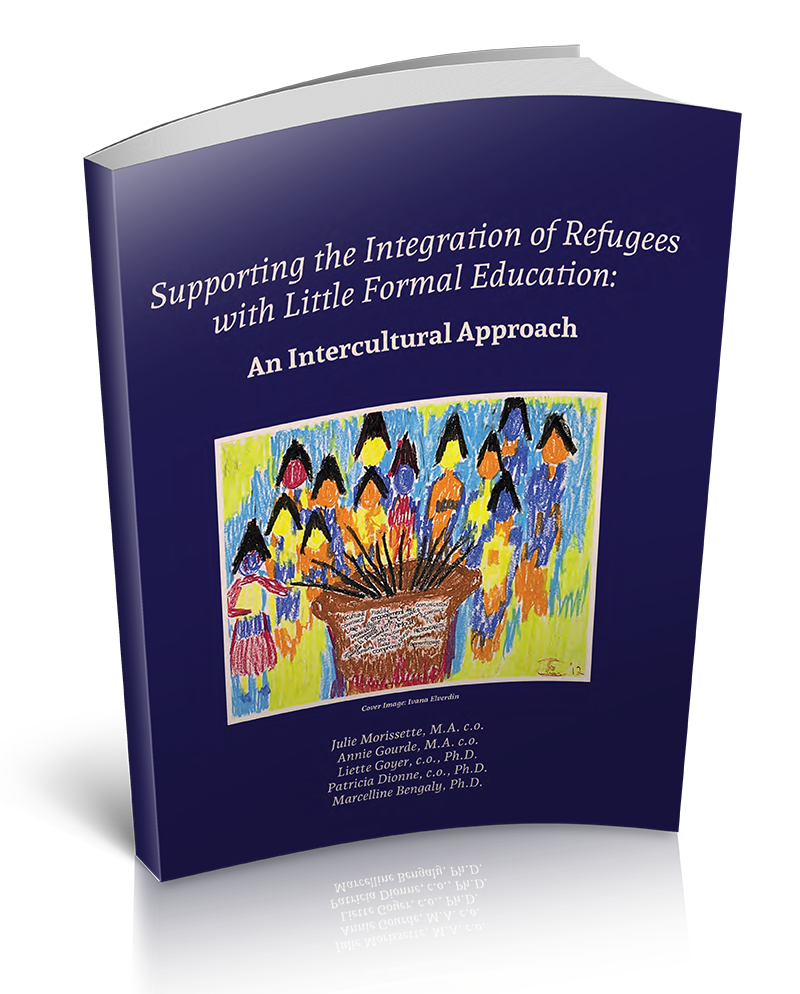
Authors : Marcelline Bengaly, Patricia Dionne, Liette Goyer, Annie Gourde and Julie Morissette
Publisher : CERIC ISBN : 978-1-988066-79-0
Webinar: View the recording for free
At the end of 2023, the research team hosted a webinar on the fundamentals of supporting refugees with low levels of education. Access the recording for a complete introduction to the guide (in French with English sub-titles).
Synopsis
In proportion to the size of its population, Canada is among the countries that welcome the most immigrants (Beaudoin, 2016; May, 2022). To adapt to the reality of a new country and settle, immigrants in general and refugees in particular need to undertake multiple learnings: culturally, professionally and especially, the specifics of the labour market, but, first of all, linguistically (learn a new language or new codes of an already spoken language). Lower levels of formal education add complexity to those learnings. After being forcibly displaced, they must now cope with enormous sociocultural and health struggles, compounded by the issue of education.
This guide—the end result of a three-year research project—is aimed at supporting the careers and employment of immigrants with a focus on refugees with minimal education. Supporting refugees in their societal and workforce integration is not only a professional commitment for service providers, but an ethical and political one as well. These newcomers need assistance with developing a plan for integrating into the economy that reflects their ideals and needs and lays the groundwork for a decent life in their new country.
As a result, it is crucial to be able to act while respecting intercultural differences and, at the same time influence systems and build bridges—especially with employers and public institutions. By focusing both on social and professional advocacy, this guide provides a roadmap for reflection and action around interventions proving to be effective for refugees with little formal education. Developed with career advisors and guidance counsellors in mind, the guide is for anyone whose work involves helping refugees to obtain jobs they value and accomplish their aspirations for a successful integration.
Series of articles written by two of the guide’s co-authors
Julie Morissette and Annie Gourde offer unique perspectives to support refugees with low levels of education better. Check out these articles to improve your practice (in French):
- L’intervention auprès de personnes réfugiées faiblement scolarisées
- Les défis auxquels font face les personnes réfugiées faiblement scolarisées lorsqu’elles s’installent au Canada et au Québec
- Les repères théoriques et implications pratiques pour aider à l’intervention en counseling et orientation dans un contexte interculturel
- Développer une pratique réflexive en intervention interculturelle en orientation auprès des personnes réfugiées faiblement scolarisées : un enjeu important
- Intervenir en orientation et en développement de carrière dans un contexte interculturel
- Download the free ePDF
- Print: $29.99 Cdn via Amazon
- Kindle edition now available $11.50 via Amazon
- Purchase bulk copies (10 or more) at 30% off by contacting sales@ceric.ca
Marcel Goguen
Employment and Career Counsellor, Post-Secondary Education, Training and Labour, NB
Nancy Arseneault
Regulated Canadian Immigration Consultant and Guidance Counsellor, QC


